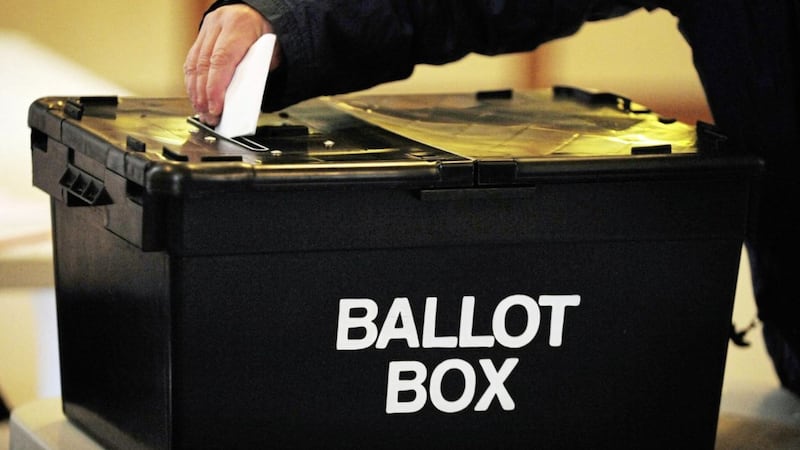ATTORNEY General John Larkin supported the appeal last week by the Department for Infrastructure to approve the Mallusk incinerator and keep Stormont's minister-free limbo going.
This is a delicious irony. In 2001, Larkin represented Peter Robinson when he took the secretary of state to court to demand an assembly election because the deadline for appointing a first and deputy first minister had been missed by a single day.
That case went all the way to the House of Lords, where the law lords ruled by a bare 3-2 majority that the secretary of state has discretion not to call an election if it will not fix the problem preventing an executive being formed in the first place.
This ruling provides the legal basis for the current Stormont limbo. Almost everyone agrees another election would just bring us back to square one.
Instead, debate has descended to whether civil servants can take decisions without ministers, such as with the incinerator.
This is a luxurious technicality - in practice, there are enough extant decisions left over from the last executive for Northern Ireland to continue on administrative autopilot for years.
Anything likely to be challenged in court, again as with the incinerator, will simply be put on the long finger.
What should actually determine how the glide path to direct rule ends, to use former secretary of state James Brokenshire's metaphor, is how long a fresh election can be denied while still claiming the law enacting the Good Friday Agreement is being upheld.
The 2001 case is becoming a tenuous reason to hold off this decision.
That year saw a series of stop-start crises at the executive as UUP leader David Trimble resigned over decommissioning.
The Northern Ireland Office took scrupulous steps not to let this glide into some form of extra-legal limbo.
Every time the six week period to reform an executive ran out, it introduced direct rule for 24 hours to reset the clock, effectively stretching the period to 18 weeks.
Even then, going over by just one day was considered dicey enough to merit elaborate constitutional chin-stroking at the highest court in the land, where two of the five law lords reckoned an election should have been called.
There seems little doubt that anyone bringing a case like Robinson's today would win. We are now 13 months past the deadline to form an executive - that deadline itself having been extended by emergency legislation to 15 weeks.
It is implausible that the Supreme Court, the successor to the law lords, would find this had ever been Parliament's intention when it set Stormont up.
The Northern Ireland Office would be forced to either call an election or introduce formal direct rule.
Why is nobody bringing such a case? Some finely balanced self-interest is putting off all the assembly parties.
Sinn Féin did threaten to demand another ballot after its triumph in the March 2017 assembly election - that partly explains why the emergency law was passed.
But by the time the new 15-week deadline had expired a Westminster election had changed republican calculations, showing there was little chance of Sinn Féin surpassing the DUP. In other words, an election would change nothing.
The DUP is just nervous enough about continued Sinn Fein growth to not want another election either.
A return to the polls would have suited the DUP in 2001 because it was the smaller party of unionism, with every expectation of making gains against a floundering UUP.
The UUP and SDLP, now the smaller parties of unionism and nationalism, are not in this position - they can only expect to be further squeezed as the big two compete for top spot.
Alliance and the Greens held their own last year but still believe another election would be pointless, while the fight seems to have gone out of the TUV.
These party positions, rather than a lack of governance on key decisions, are why the limbo is not being brought to a head.
Everyone is now thinking of a Brexit timeframe for restoring Stormont, and with that deadline only nine months away, a weary air of leaving well enough alone has settled over the political establishment.
It may fall to others - business interests, perhaps - to decide if they can wait this long with still no guarantee of progress.
Given how readily campaigners seek judicial reviews in Northern Ireland it is extraordinary that nobody has pursued an election, or the direct rule not calling an election should mean.
newton@irishnews.com









